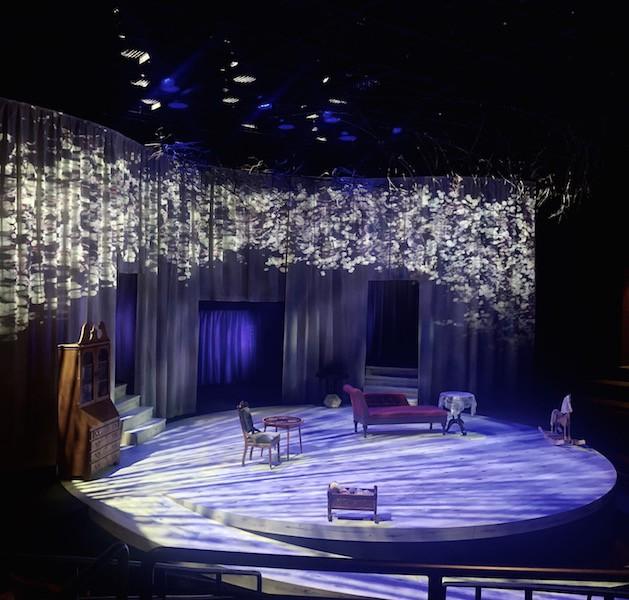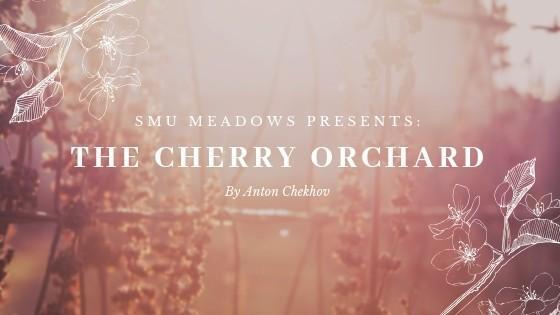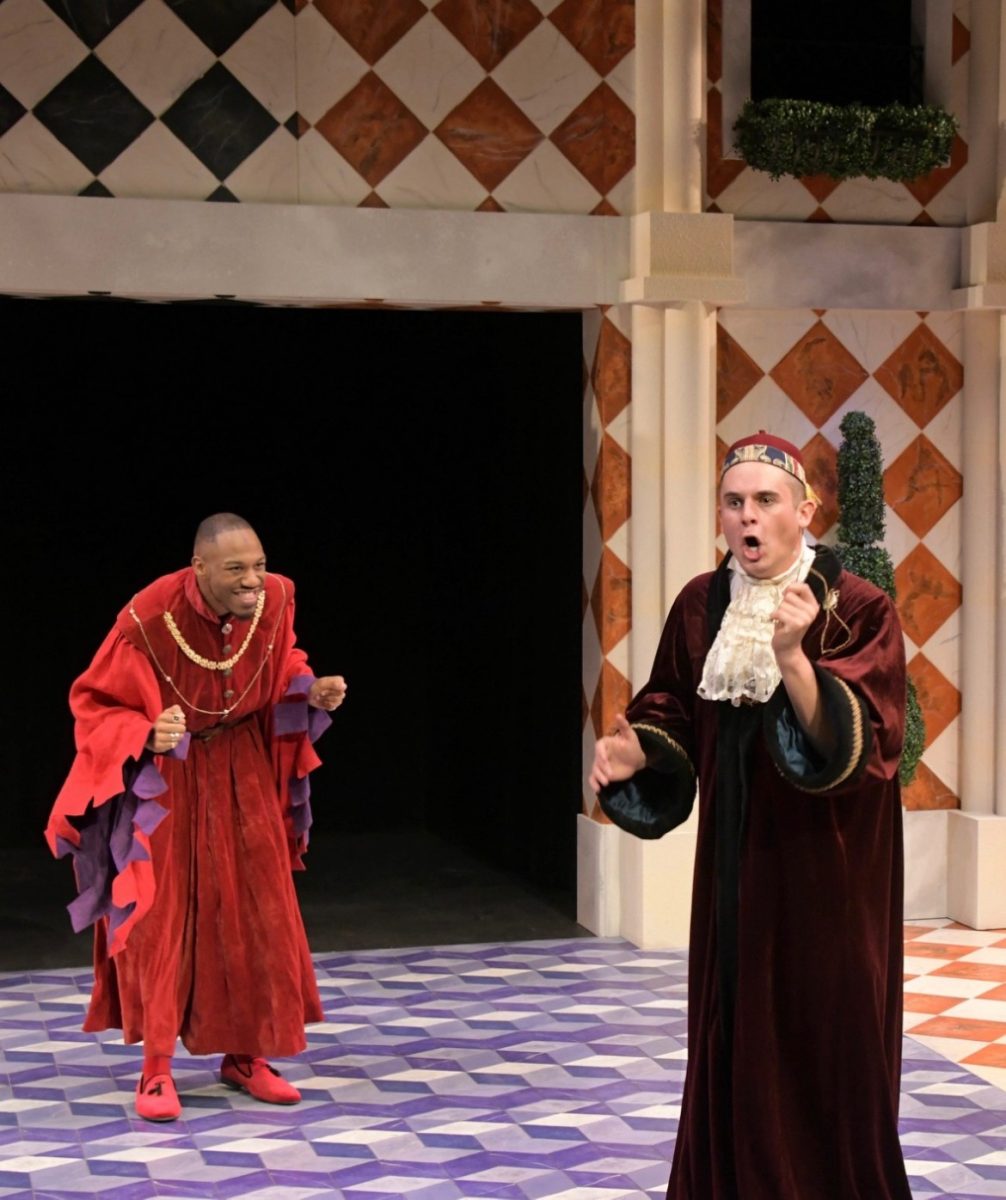It seems like a typical autumnal Thursday evening. The campus is quiet, and there’s a bit of chill in the air. As patrons make their way through the doors of the Greer Theater, though, they will soon discover that this evening will be anything but typical. Presented with a story defined by its conflicting themes of absurdity and tragedy, the audience will be left in a state of reluctant ambivalence as they struggle to decide if these characters deserve their tears, or rather, their mockery.
The stage is stunning. A wash of blue and violet lights tint the entirety of the space. Among the cool hues, several props catch the eye: the bookcase, the burgundy chaise lounge, the child’s rocking horse. These pieces look like antiques, and they come together to create an image of an opulent home of another time. Besides the furniture, perhaps the most striking component of this stage is the projection of white cherry blossoms on the curtains, transforming the space into something ethereal and enchanting. Like every fairy tale, though, there is a darkness that threatens to unravel its subjects entirely.

The story follows an affluent Russian family and their battle to maintain their estate, which is largely defined by the beautiful white cherry orchard trees that blanket the land. With no money to speak of, it seems that the only solution would be to sell the land so that it may be used to build summer homes for prospective families. The idea of the precious family cherry orchard being chopped down is absurd to both Lyubov Andreyevna Ranyevskaya (Molly Searcy, MFA ’20) and her brother Leonid (Carson Wright, BFA ’19), so they continue to dismiss the idea and essentially sit around in hopes that divine intervention will save the estate. Stuck in their own idleness and ignorance, the family is inevitably disappointed in the consequences of their inactions.
The play begins with Madame Lyubov’s return to the estate after years of living abroad in Paris. Entering the stage in a gorgeous black and berry-colored lace gown, Lyubov is the picture of both sophistication and extravagance. Though she is in desperate need of money in order to save the property, she struggles to depart from her aristocratic lifestyle of luxury. One example of this comes in Act 3 of the play, in which the family hosts a party. As a version of Shostakovich’s “Waltz No. 2” sounds across the stage, the posh aristocrats dance around the room, twirling with reckless abandon and no thought of the days to come.
As the title implies, the cherry orchard is a significant motif in the play and a conflicting one at that. Each character carries a different opinion of the orchard, depending on their class or their personal convictions. For Lyubov, the orchard is essentially synonymous with the family estate. The trees were planted generations before, and as she grew up, she began to appreciate them as illustrations of both natural beauty and familial accomplishment. On the other hand, there are also dark memories associated with the land, as it was the site where her young son Grisha drowned years before.
Other characters have painful associations to the orchard as well, such as former peasant Lopakhin (Richard Johnson, MFA ’20). His father and his grandfather were both serfs tied to the land, so for him, the orchards represent years of oppression and suffering at the hands of the upper class. This perspective is supported by student Trofimov (Matthew Wagner, BFA ’19) who dreams of a more egalitarian Russia. Trofimov even tries to reason with Lyubov’s daughter Anya (Coda Boyce, BFA ’20), explaining how the disenfranchised people of the lower classes view the orchard.
“Don’t you see human spirits peering at you from every tree in the orchard, from every leaf, from every branch? Don’t you hear their voices? …Oh, it’s awful. Your orchard is a terrible thing. Possessing living souls has corrupted all of you, those who lived before and since.”
Besides being the last play written by Russian playwright and author Anton Chekhov, “The Cherry Orchard” is significant in that it is a play deeply embedded in the Russian history and culture of the time. Coming from a period many years after the abolition of serfdom in Russia and just a year before the Revolution of 1905, the play entertains themes of aristocratic decline, drastic social change, and the repercussions of the blinding ignorance of the bourgeoisie. These concerns manifest through the actions (or inactions) of the characters, and though it is easy to be frustrated and judge Lyubov and her family, it is likely that their behaviors are more familiar and personal than many would care to admit.
The play closes with the haunting sound of an ax falling on the orchard trees, and, like the ticking of a clock, the audience is left to reckon with both their own mortality and privileged society’s transient state of being. Tick, tock. Chop, chop.









